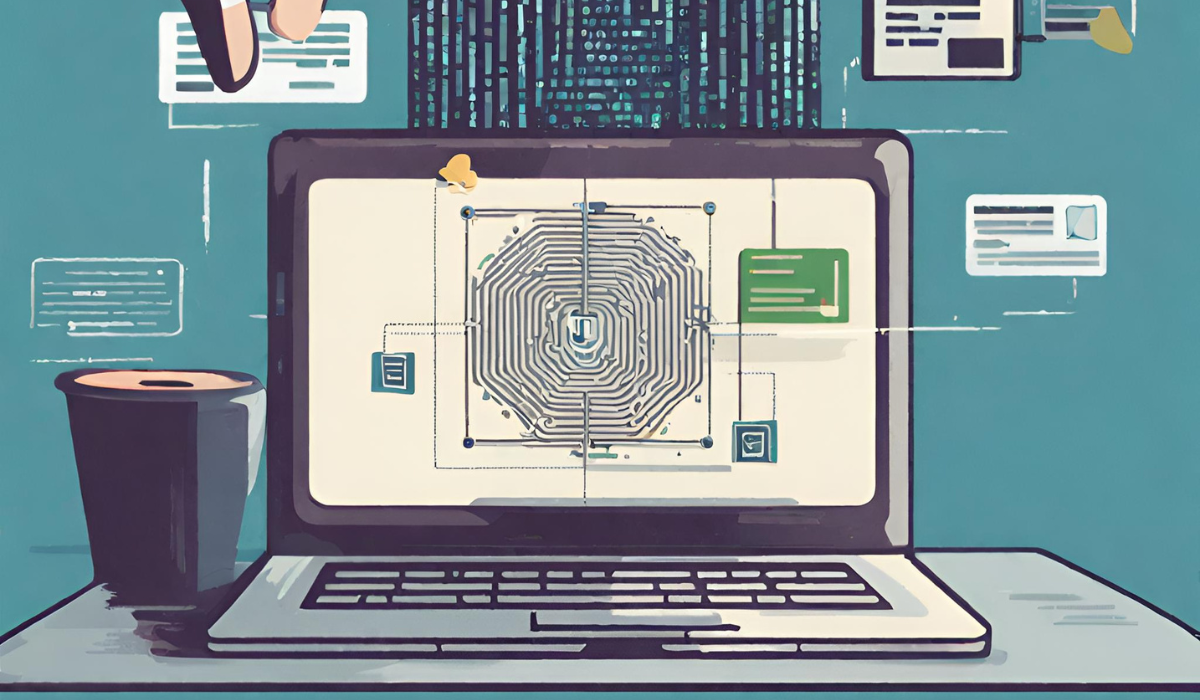Introduction
Data protection is crucial in today’s digital age. With the increasing amount of data generated, collected and stored by businesses, it is important to ensure that this information is secure from unauthorized access or use. Data protection can be defined as the set of measures taken to maintain the confidentiality, integrity and availability of data. It includes a range of activities such as data backup and recovery, encryption, access control and vulnerability management.
Data security and data integrity are two fundamental aspects of data management that must be understood to ensure the reliability, authenticity, and confidentiality of data. Data security refers to the measures put in place to protect sensitive information from unauthorized access or theft. This involves implementing firewalls, encryption, access controls, and other security measures to prevent unauthorized access or tampering with data.
On the other hand, data integrity is concerned with the accuracy and consistency of data throughout its lifecycle. It ensures that the information remains unaltered and authentic from creation through processing to storage. Ensuring that data is accurate and consistent over time requires an appropriate set of checks and balances at each stage of its lifecycle.
While both concepts are important for any organization dealing with sensitive information, it is crucial for businesses to understand the differences between these two concepts to effectively manage their data risks. By understanding these differences, organizations can develop comprehensive strategies for safeguarding their valuable information assets by applying a combination of proactive security measures and ensuring high accuracy and consistency throughout their systems.
Understanding Data Security
Definition Of Data Security
Data security refers to the measures taken to protect data from unauthorized access, theft, or damage. It involves safeguarding sensitive information from being compromised by hackers, malware, or other malicious actors who may use it for personal gain. Data security is essential for businesses and organizations that handle sensitive customer information such as credit card numbers and personally identifiable information (PII).
Types Of Data Security Measures
There are various types of data security measures that have been developed over the years.
Access Controls
Access controls are an essential aspect of data security that help in regulating who has permission to access specific resources or information. These controls ensure that only authorized personnel can gain access to sensitive data, which minimizes the risk of unauthorized access and data breaches. Access controls can be physical, logical, or administrative and vary depending on the type of resource being protected.
Physical access controls involve restricting entry into a particular building or room by using mechanisms such as security guards, ID cards, or biometric scanners. Logical access controls regulate user authentication credentials like usernames and passwords required to gain entry into electronic systems. This helps limit access based on job function or role within an organization. Administrative access controls come into play when assigning permissions and granting privileges based on business needs.
Encryption

One of the most important aspects of data security is encryption. Encryption is the process of converting plain text into code to protect sensitive information from unauthorized access. When data is encrypted, it can only be decrypted by authorized individuals who have the key to unlock it.
Authentication

Authentication refers to the process of verifying the identity of a user or system attempting to access information or services. The objective is to ensure that only authorized users can access certain resources while keeping unauthorized parties at bay. This can be done through various means such as passwords, biometric authentication, token-based authentication, and multi-factor authentication.
Authentication plays an essential role in maintaining data security by preventing unauthorized access to sensitive information. Without proper authentication measures in place, hackers and other malicious actors could gain access to private data, leading to harmful consequences for individuals or organizations.
Firewall
Another fundamental component of data security is a firewall. A firewall is a network security system that can monitor and control incoming and outgoing network traffic based on predetermined security rules. It acts as a barrier between an organization’s internal networks and external networks, such as the Internet, to prevent unauthorized access or malicious attacks.
A firewall can be implemented in two forms, hardware-based and software-based. Hardware-based firewalls are physical devices that sit between different segments of a network to filter traffic. On the other hand, software-based firewalls are installed on individual computers or servers to protect them from external threats.
Importance Of Data Security In Different Sectors

In today’s digital age, data security has become a critical concern for businesses across different sectors. This is particularly true given the rise in cyber threats and the growing dependence on technology. From healthcare to finance to retail, organizations are tasked with safeguarding sensitive information such as personal data, financial transactions, and trade secrets.
In the healthcare sector, patient data must be protected under strict regulations like HIPAA. Any breach of this information can result in hefty fines and damage to an organization’s reputation. Meanwhile, financial institutions must ensure that their clients’ banking details remain confidential amidst an increasing number of online transactions.
Retailers also face similar challenges as they store customers’ personal and payment information for online purchases. Additionally, retailers need to protect against inventory theft by preserving supply chain data integrity from vendors to point-of-sale systems.
All these sectors require a robust data security strategy that includes encryption protocols, firewalls, access controls, regular backups and other measures necessary to prevent unauthorized access or loss of sensitive information.
Data Breaches And Their Consequences
Data breaches have far-reaching consequences that can impact individuals, businesses, and governments alike. One of the most significant consequences of a data breach is the loss of sensitive information. This can include personally identifiable information such as social security numbers or financial information like credit card details. This data can be sold on the dark web, leading to identity theft and financial fraud.
In addition to the loss of sensitive data, data breaches also damage an organization’s reputation and trustworthiness among its customers. A company that experiences a data breach may lose customers who no longer feel safe entrusting their personal information with them. This can lead to decreased revenue and even bankruptcy for smaller companies.
Understanding Data Integrity
Definition Of Data Integrity
Data integrity refers to the accuracy, consistency, and reliability of data over its entire lifecycle. It involves maintaining the quality of data by ensuring that it is complete, correct, and consistent. Data integrity ensures that data remains trustworthy and reliable throughout its usage in various applications. This includes preventing unauthorized access or modification of data.
Importance Of Data Integrity
Maintaining data integrity is essential for making informed business decisions based on accurate data analysis. When there are errors or inconsistencies in the dataset being analyzed due to poor data management practices or intentional tampering by malicious actors, it can lead to incorrect insights and ultimately harm the organization’s reputation. Additionally, poor quality control measures can result in regulatory violations that may attract legal repercussions.
Types Of Data Integrity Measures
- Cryptographic Methods: Cryptography involves encrypting data so that only authorized users can access it. The encryption of data can be achieved through various methods such as hashing, symmetric and asymmetric cryptography, digital signatures, and secure key-exchange protocols.
- Access Control Measures: Access control mechanisms are designed to ensure that only authorized personnel have access to sensitive information. These measures include firewalls, intrusion detection systems(IDS), user authentication processes like passwords and biometrics, and role-based access control(RBAC).
- Backup and Recovery Processes: Data backups are an essential part of any data integrity strategy because they provide a fallback option in case the original data is lost or corrupted. Backup systems must be carefully crafted to avoid compromising the security of the original data while providing reliable recovery options.
- Error Detection & Correction Mechanisms: Data integrity also relies on error-detection codes such as checksums or parity bits which help detect errors in transmitted or stored data by comparing them against precomputed values. In addition, error-correction codes like Reed-Solomon codes can automatically correct certain types of errors without requiring the retransmission of the entire dataset.
Maintaining Data Integrity
Validation
Validation refers to the process of evaluating and verifying data to ensure it is valid, accurate, and consistent with predefined standards. Data validation aims to identify errors or inconsistencies in data that could potentially compromise its integrity. This process involves comparing data against set criteria such as format, range, and domain constraints.
Verification
Verification is a crucial process in ensuring data integrity. Verification involves checking the accuracy and completeness of data, as well as ensuring that it meets specific requirements or standards.
The verification process can take different forms depending on the type of data being verified. For instance, software developers use code review and testing to verify that their code works as intended. Data analysts may use statistical methods to ensure that their findings are accurate and reliable. Whatever form it takes, verification plays a critical role in maintaining trust in the accuracy and reliability of digital information.
Without proper verification processes in place, errors can easily creep into datasets leading to incorrect conclusions or decisions based on flawed information. Therefore, businesses must prioritize verification efforts alongside implementing robust security measures for cyber protection.
Difference Between Data Security And Data Integrity
Objective
Objective refers to the purpose for which data is collected, processed, or stored. Every organization collects and stores data for specific reasons, such as customer relationship management, accounting purposes, or marketing. The objective of securing data is to prevent potential threats such as hacking attempts and cyber-attacks that could compromise sensitive information. Meanwhile, the objective of ensuring data integrity is to eliminate errors that may arise during processing or storage.
Focus
Data security refers to the protection of digital information from unauthorized access, theft or damage. This includes measures such as firewalls, encryption, and authentication protocols that prevent external threats from penetrating a company’s systems. On the other hand, Data integrity refers to maintaining accuracy and consistency in stored data throughout its lifecycle. Ensuring that data is complete, accurate and consistent requires continuous monitoring of all aspects of database management.
Methods
The method for ensuring data security is through encryption, which involves encoding information in a way that only authorized parties can decipher. On the other hand, methods for maintaining data integrity include regular backups and using checksums to detect any errors or tampering.
Outcomes
Without proper security measures in place, sensitive information can fall into the wrong hands, leading to serious consequences such as identity theft or financial fraud. On the other hand, if data integrity is compromised, it could lead to incorrect analysis and decision-making based on false information.
Similarities Between Data Security And Data Integrity
Data protection
Data protection is essential for any organization that deals with sensitive information. Two crucial aspects of data protection are data security and data integrity. While they may seem like two distinct concepts, there are several similarities between the two.
Both data security and data integrity aim to protect important information from unauthorized access or modification. Data security involves implementing measures such as firewalls, encryption, and access controls to prevent cyber-attacks and maintain confidentiality. Similarly, data integrity focuses on ensuring that the information stays accurate and consistent throughout its lifecycle by preventing unintentional or deliberate alterations.
Both concepts play a vital role in compliance with regulatory requirements concerning privacy and security. Organizations must comply with laws such as HIPAA, GDPR, or CCPA to ensure that customer information remains secure while also upholding their right to privacy.
Importance to business operations
In today’s digital age where cyber threats are rampant, it is crucial for businesses to secure their networks and databases to prevent any breaches or attacks. Similarly, ensuring the accuracy of data is equally important as incorrect information can lead to poor decision-making and loss of trust among stakeholders.
Use of technology
Another similarity is the use of technology to safeguard data against unauthorized access, manipulation, or loss.
Data security utilizes various technological solutions such as firewalls, antivirus software, and encryption tools to prevent unauthorized individuals from accessing sensitive data. Similarly, data integrity utilizes technologies like backup systems and version control tools that ensure that data remains intact throughout its lifecycle.
Why Both Are Important?
Both data security and data integrity are crucial factors for businesses that handle sensitive customer information, financial records, or intellectual property. Failure to secure sensitive information can lead to legal liabilities, loss of business reputation, or financial losses due to fraud or cybercrime. Similarly, compromised data integrity can result in inaccurate decision-making processes and costly errors.
FAQs
Can Data Security Measures Ensure Data Integrity?
While strong security measures can help prevent intentional or accidental alteration of data, they do not guarantee that the original information has not been tampered with. In order to ensure complete data integrity, a multi-faceted approach is necessary. This includes implementing proper backup and recovery procedures, monitoring for unusual activity or changes in data patterns, and regularly auditing systems to identify potential vulnerabilities.
Why Are Data Security And Data Integrity Important In The Healthcare Sector?
The healthcare industry is a prime target for cybercriminals due to the vast amount of personal information stored in EHRs. A breach in data security can result in identity theft, financial fraud, and even endanger patient lives.
Data integrity, on the other hand, is about maintaining the accuracy and consistency of data over its entire lifecycle. Inaccurate or incomplete medical records can lead to misdiagnosis or improper treatment that may harm patients’ health outcomes. Ensuring that medical data is complete and accurate helps healthcare providers make informed decisions concerning patients’ care.
How Can A Business Ensure Data Security And Data Integrity When Using Cloud Storage?
Businesses should choose a reliable cloud service provider that implements robust security measures such as encryption, firewalls and intrusion detection systems. It is also essential to regularly update software systems and patch vulnerabilities as they arise. Moreover, businesses need to ensure that only authorized individuals have access to sensitive information by implementing strong password policies and multifactor authentication.
Companies should have backup protocols in place and test them regularly for effectiveness. In case of any unforeseen event such as a cyber-attack or natural disaster affecting the primary system, having a backup ready will ensure minimal loss of data.
It is crucial for businesses to educate employees on best practices for handling sensitive information in cloud storage environments. This includes avoiding public Wi-Fi networks when accessing company accounts and using secure methods for file sharing among colleagues.
Conclusion
Both data security and data integrity are crucial aspects of modern-day information management. While the former is concerned with protecting confidential information from unauthorized access or manipulation, the latter focuses on ensuring that data remains accurate, consistent, and reliable throughout its lifecycle. Organizations must develop a comprehensive strategy that addresses both of these concerns to safeguard their sensitive information while maximizing its value.
